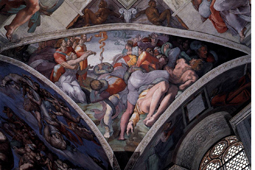
In the passage from the Gospel according to John (8:21-30), Jesus says: “When you have lifted up the Son of man…” and, foretelling of his death on the cross, evokes the bronze serpent that Moses raised “to heal the Israelites in the desert” and which was recounted in the First Reading from the Book of Numbers (21:4-9). The People of God enslaved in Egypt, the Pope explained, had been freed: “They had truly seen miracles. And when they were afraid, at the time of the Pharaoh’s persecution, when they were faced with the Red Sea, they saw the miracle” that God performed for them. The “journey of liberation” thus began in joy. The Israelites “were happy” because they had been “liberated from slavery”, happy because “they carried with them the promise of very good land, a land for them alone”, and because “none of them had died” on the first part of the journey. The women were also happy because they had “the jewels of the Egyptian women” with them.
At a certain point though, the Pontiff continued, at the moment in which “the journey was getting long”, the people could no longer bear it and “they grew tired”. Therefore they began to speak “against God and against Moses: why have you brought us up out of Egypt to die in the wilderness?”. They began to “criticize: to speak against God, against Moses”, saying: “Here there is no bread and no water, and we loathe this worthless food, this manna”. In other words, the Israelites “loathed God’s help, a gift of God. And thus that initial joy of liberation became sorrow, complaining”.
They would have probably preferred to be freed by “a magician performing magic with a wand” rather than a God who made them walk and made them “earn salvation” or “at least partly deserve it” by acting “in a certain way”.
In the Scripture we meet a “discontented people” and, Francis pointed out, “criticizing is a way out of this discontentment”. In their discontent, “they vented, but they didn’t realize that the soul becomes poisoned with this attitude”. Thus, the serpents arrive, because “like this, like the venom of serpents, at this moment these people had a poisoned spirit”.
Jesus, too, speaks of the same attitude, of “this way of not being content, not satisfied”. The Pontiff then referred to a passage from the Gospels of both Matthew (11:17) and Luke (7:32): “When Jesus speaks of this attitude He says: ‘How are you to be understood? Are you like those youths in the square: we played for you and you did not dance; we wailed and you did not mourn. Does nothing satisfy you?’”. The problem “wasn’t salvation” but rather “liberation”, because “everyone wanted this”; the problem was “God’s way: they didn’t like dancing to God’s song; they didn’t like mourning to God’s lamentations”. So “what did they want”? They wanted, the Pope explained, to act “according to their own thoughts, to choose their own path to salvation”. But that path “didn’t lead to anything”.
This is an attitude that we still encounter today. “Among Christians”, Francis asked, how many are “somewhat poisoned” by this discontentment? We hear: “Yes, truly, God is good. Christians, yes, but…”. They are the ones, he continued, “who end up not opening their heart to God’s salvation” and who “always ask for conditions”; the ones who say: “Yes, yes, yes, I want to be saved, but on this path”. This is how “the heart becomes poisoned”. This is the heart of “lukewarm Christians” who always have something to complain about: “‘Why has the Lord done this to me?’ — ‘But He saved you, He opened the door for you, He forgave you of so many sins’ — ‘Yes, yes, it’s true, but…’”. Thus the Israelites in the desert said: “I would like water, bread, but the kind I like, not not this worthless food. I loathe it”. And we too “so often say that we loathe the divine way”.
Francis emphasized: “Not accepting the gift of God with his way, that is the sin; that is the venom; that poisons our soul, it takes away your joy, it doesn’t let you go”.
So “how does the Lord resolve this? With poison itself, with sin itself”: in other words “He takes the poison, the sin, upon Himself and is lifted up”. Thus “this warmth of soul, this being halfway Christians” this being “Christians, yes, but…” becomes healed. The healing, the Pope explained, comes only by “looking to the cross”, by looking to God who takes on our sins: “my sin is there”. However “how many Christians in the desert die of their sorrow, of their complaining, of their not wanting God’s way”. This is for every Christian to reflect upon: while God “saves us and shows us what salvation is like”, I “am not really able to tolerate a path that I don’t like much”. This is the “selfishness that Jesus rebukes in his generation”, which said of John the Baptist: “He has a demon”. And when the Son of Man came, He was defined as a “glutton” and a “drunkard”. And so, the Pope asked, “who understands you?”. He added, “I too, with my spiritual caprice regarding the salvation that God gives me, who understands me?”.
Therefore, there is an invitation to the faithful: “Look at the serpent, the venom there in the Body of Christ, the poison of all the sins of the world and let ask for the grace to accept the divine way of salvation; to also accept this food, so wretched that the Hebrews complained about it”: the grace, that is, “to accept the ways by which the Lord leads me forth”. Francis concluded by praying that Holy Week may “help us to leave behind this temptation to become “ Christians, yes, but…’”.

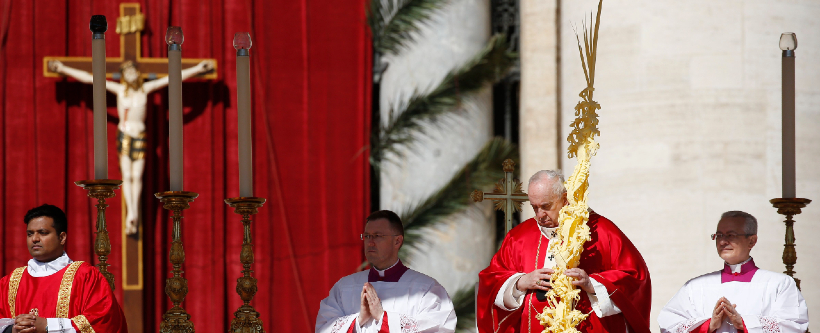
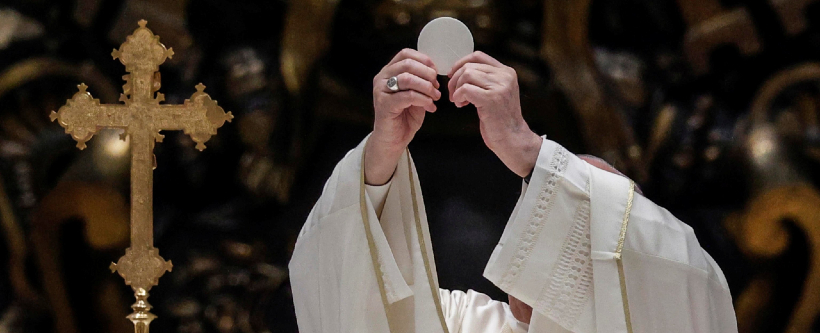
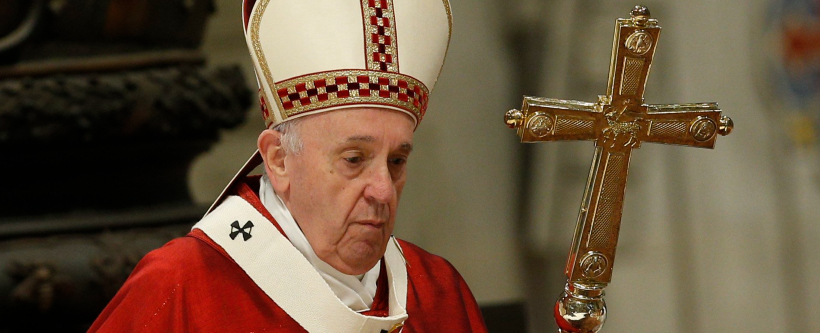
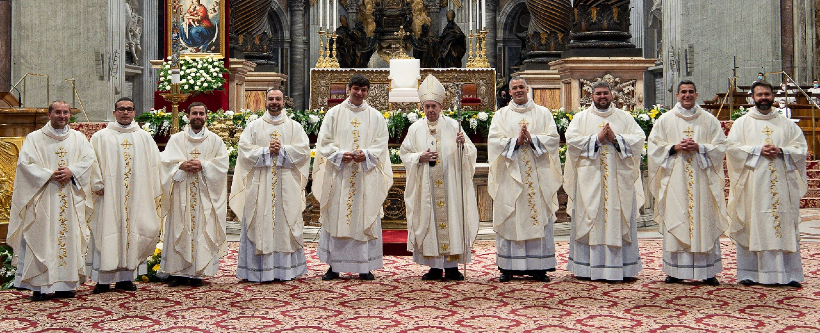
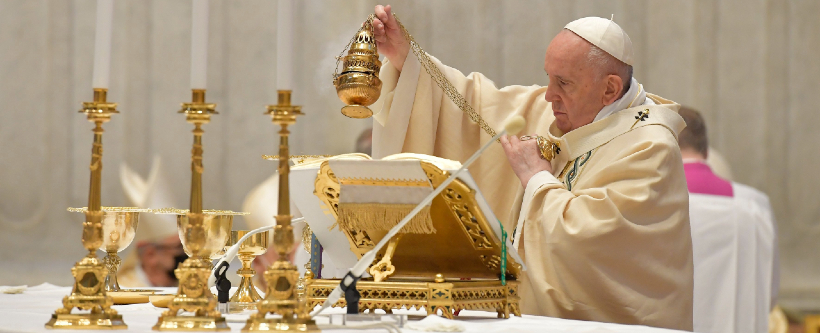
Facebook Comments